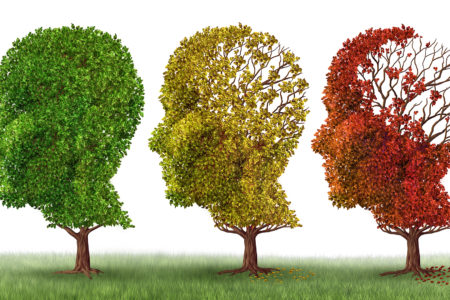
The federal government plans to expand Canada’s Medical Assistance in Dying (“MAiD”) regime, less than four years after the practice was legalized. The move is in response to Truchon v Attorney General of Canada, in which the Quebec Superior Court found Canada’s existing law (Bill C-14) to be overly restrictive. Specifically, the court rejected the requirement that an individual’s death be “reasonably foreseeable” before obtaining a physician or nurse practitioner’s assistance to end their life.
The claim was brought by two plaintiffs – Montrealers Jean Truchon and Nicole Gladu – who live with degenerative conditions and sought the option of MAiD but were considered ineligible under Bill C-14 because they were not approaching death (nor would their conditions cause or hasten it). The court described the difficulties they experience: physical deterioration, loss of autonomy, feelings of dependence, and struggle to find meaning in life.
The Truchon case and the legislative response to it raise difficult questions about MAiD, especially in connection with psychological, existential, and other types of suffering outside the end-of-life context. Serious concerns have been raised about expanding MAiD as a response to suffering in life, not just suffering as death approaches (as expressed by suicide prevention expert Dr. Mark Sinyor in the Truchon case). A more expansive approach should be rejected, cautions professor Catherine Frazee, former chief commissioner of the Ontario Human Rights Commission, as it would “embrace uncritically the dangerous notion that suffering associated with disability is a burden greater than death and that termination of such a life is a ‘benefit’ worthy of protection in law.”
Indeed, this is one of the reasons Bill C-14 limited MAiD to patients who were approaching death: to “guard against death being seen as a solution to all forms of suffering,” according to the federal government. The “reasonably foreseeable death” criterion was designed to strike a balance between individual autonomy interests on the one hand, and societal commitments on the other, such as affirming suicide prevention efforts, ensuring respect for human life, protecting vulnerable patients, and countering negative stereotypes based on illness, age, or disability.
However, the Quebec Superior Court largely dismissed these considerations, because in its view, the law’s only real goal was to “protect vulnerable persons who might be induced to end their lives in a moment of weakness.” The court insisted that other safeguards are sufficient to minimize this risk. This restrictive interpretation of the law’s purpose, despite contradicting the clear language of Bill C-14’s preamble, dictated the analysis and outcome in Truchon.
The federal government has been strongly urged to appeal the decision, but has opted not to do so; it seems to have resigned itself to the court’s rejection of the “reasonably foreseeable” criterion.
However, Parliament should not rush to abandon the principle so quickly.
Limiting MAiD to the end-of-life context is relevant to suicide prevention not just because MAiD could be administered in moments of weakness, but because the law is structured to uphold a societal commitment to the sanctity of life – described by the Supreme Court in Carter as “one of our most fundamental societal values.” Properly understood, this commitment is one that always affirms dignity in life, even amidst suffering, and in the words of Justice John Sopinka in Rodriguez, “reflects the policy of the state that human life should not be depreciated by allowing life to be taken.”
By permitting physicians to end a patient’s life only as an exceptional practice and in the context of finalizing an already-in-motion “passage to death” – not as a standalone “solution to all forms of suffering” – the law seeks to promote life-affirming treatment for patients who are not dying. This helps reinforce that there is hope and dignity in living, that terminating life is not a general solution to resolve pain, and that there must be no confusion about our fundamental commitment to healing in our medical and cultural ethos.
Similarly, Bill C-14’s emphasis on upholding the equal and inherent value of all people is not only about protecting patients from being pushed toward MAiD because they feel devalued, but to emphasize society’s positive support for those who choose to live with an illness or disability. Bill C-14 affirms that those lives are deeply valued and must never be viewed as lacking dignity or less worthy of support. The law needs to guard against disapprobation of one’s choice to live with dignity – and to condemn any effort that might undercut social or medical support for that choice – by prohibiting the state from ever endorsing the view that disability related suffering in life is a fate worse than death. Bill C-14 was designed to protect patients not just from social pressure to choose death, but from facing discrimination or prejudice in their decision to choose life.
Addressing social and existential suffering
Jean Truchon and Nicole Gladu want the option of MAiD in part because of psychological suffering connected to their loss of autonomy, feelings of dependence, and struggle to find meaning in life. They are not alone. According to the data reviewed by the court, the presence of psychological suffering (either alone or, much more commonly, in combination with physical suffering) has contributed to 95 percent of MAiD cases in Quebec (compared with 62 percent in Belgium).
Undeniably, this suffering is profound, deep, and painful. But is state-sponsored death the appropriate treatment? Is enough being done to ensure that other supports are in place to alleviate social and existential suffering, or is a lack of meaningful alternatives driving MAiD requests?
Further, if the law endorses the idea that the perception of being a burden is a form of intolerable suffering that can be rationally resolved by ending one’s life, what message is sent to every person who depends on others for care and support?
Even if the law’s social messaging does not necessarily drive vulnerable patients to hastily seek MAiD (the court’s primary focus in Truchon), there remains a legitimate role for lawmakers to play in resisting such messaging at all. As the Supreme Court has recognized, the law has a role to play “in a larger attitudinal sense,” for example, in asserting the value of lives “against the erosion of societal attitudes towards them” (a point made by Christian Legal Fellowship in its intervention in Carter).
One could counter, as the court did in Truchon, that one’s autonomy to make personal decisions “affecting his or her own body, regardless of the timing and potential consequences of those decisions” must take priority. But euthanasia is not strictly a private matter, nor should the state be expected to perform it regardless of the “potential consequences.” MAiD is a “social act,” requiring third parties to carry it out. In Canada, it is publicly funded and administered. In this context, the state is not merely asked to respect one’s private decision to end one’s life; the state (and by extension, society as a whole) is also expected to provide resources and personnel to execute that decision.
What’s at stake?
In finding Bill C-14 too restrictive, the court in Truchon still acknowledged that “[c]learly, no system other than total and absolute prohibition will ever be able to prevent every error.” The “error” in question should be stated explicitly: that someone’s life could be wrongly terminated by the state. But a wrongful death should not be viewed in the abstract as an “error” or “risk” that can be “substantially minimized.” Would not the tragic loss of one human life be one too many? If not, how many would be? This, perhaps, is the greater risk in expanding MAiD, one that we cannot yet quantify or even fully appreciate: the long-term effects of gradually eroding our once exceptionless commitment to the inviolability of human life.
Of course, much of this is not new. Canada started down this path well before Truchon and willingly assumed some of these risks by legalizing MAiD in the first place. With Bill C-14, Parliament at least tried to strike a compromise, recognizing that MAiD affects society as a whole, and necessitates a careful balancing of multiple considerations. By narrowly construing the law’s purpose, however, the Quebec court has excised these important societal and ethical considerations. These are largely policy questions, ones that Parliament is best positioned to address through a “complex regulatory regime.” Certainly, the law needs to be concerned with protecting vulnerable patients in moments of weakness, but it is a grave mistake to insist that this should be its only concern. There are significant additional considerations, both individual and societal, that also require protection. As we move forward, we must not abandon this crucial premise.
Photo: Shutterstock/By Photographee.eu
Do you have something to say about the article you just read? Be part of the Policy Options discussion, and send in your own submission. Here is a link on how to do it. | Souhaitez-vous réagir à cet article ? Joignez-vous aux débats d’Options politiques et soumettez-nous votre texte en suivant ces directives.






